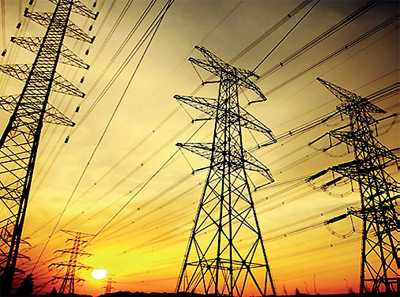Monday Feb 23, 2026
Monday Feb 23, 2026
Monday, 25 March 2019 00:07 - - {{hitsCtrl.values.hits}}
By Chathuri Dissanayake
The Power Ministry is yet to approve and make public the power cut schedule despite Ceylon Electricity Board (CEB) informing the Ministry Secretary of the decision to carry out load shedding last Monday (18 March), but a copy leaked to the public yesterday, causing much consternation. 
Minister Ravi Karunanayake, who earlier insisted to the public there would be no power cuts, has reportedly refused to announce scheduled power shedding although the CEB claims it is unable to avoid the move to manage the system effectively.
The Minister was not immediately available for comment. Karunanayake earlier decided to not purchase supplementary power even after a tender process was carried out to buy 100MW. The Procurement Committee had recommended three bidders who were qualified to supply for the tender.
Public Utilities Commission of Sri Lanka (PUCSL), too, wrote to the CEB, questioning the move to carry out scheduled power cuts, noting that scheduled power cuts without prior notice is illegal.
“We wrote to them on 19 March immediately after 18 March when the first power interruptions happened, and we have called on the public to report any interruptions as well,” PUCSL Director Corporate Communications Jayanat Herat told Daily FT.
“In terms of the legal framework, this is illegal. The licence condition 30 (10) of the Electricity Transmission License No: EL/T/09-002 says except for the sudden failure of plants, all other interruptions should have prior approval and be informed to the public. The economic losses of this kind of uninformed interruptions are large,” he said.
Noting that the Commission has the responsibility of ensuring the rights of the consumer is protected, Herat said that the CEB as the licensee is responsible for obtaining permission regardless of other stakeholder constraints they face, such as the stand taken by the Ministry.
Noting that the situation faced by the country today was foreseen by the Commission, Herat said that as the licensee CEB should take necessary steps.
“The Commission has warned them and shown that there would be a shortage in 2016. Since these are not sudden issues, they have to follow a legal framework. This condition has been put in the licence with the aim of minimising losses,” he insisted.
The CEB, however, maintained their stand on the decision to carry out scheduled load shedding, noting that to manage the system and avoid a complete failure, load shedding has to be done.
“Whether there is approval granted by different entities or not, we have to carry out load shedding. The only difference is that under the current circumstances, we can manipulate the system to ensure that the power cuts are spread fairly, as we can predict when the load shedding is needed,” a CEB official who declined to be quoted told Daily FT.
With the Castlereagh and Mausakelle reservoirs’ storage capacities at only 8.2% and 27.4% of their full storage, respectively, the CEB is limited in its capacity to generate power as the water levels are expected to reach minimum capacity within the next two to four weeks. The CEB in a letter requested the Ministry to take necessary action to publicise the power cut schedule and noted that the water levels of the two reservoirs have to be maintained to supply water to the Ambathale purification plant, which supplies drinking water to Colombo.